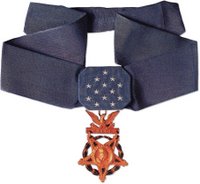ZUI
this article from news.com.au:
THE bravery that earned Australian soldier Cameron Baird a posthumous Victoria Cross was revealed as his parents accepted his award today.
He was the 40th Australian soldier to die in Afghanistan, the fourth awarded a VC, and the first to get the award posthumously since Vietnam.
Governor-General Quentin Bryce read an official citation outlining Corporal Baird’s actions as she conferred the award on his parents, Doug and Kaye Baird, during a ceremony at Canberra’s Government House today.
This was the fourth award of the Victoria Cross for Australia, and the 100th award of the VC to an Australian.
The citation for Baird's's VC, along with his official biography, can be found
here.
************* *** *************
CAMERON STEWART BAIRD MG
Corporal, 4th Battalion, Royal Australian Regiment (Commando); Special Operations Task Group
Born: 7 June 1981, Burnie, Tasmania, Australia
Died: 22 June 2013, Khod Valley, Uruzgan Province, Afghanistan

Citation: For the most conspicuous acts of valour, extreme devotion to duty and ultimate self-sacrifice at Ghawchak village, Uruzgan Province, Afghanistan as a Commando Team Commander in Special Operations Task Group on Operation SLIPPER.
Corporal Cameron Baird enlisted in the Australian Regular Army in 2000, was discharged in 2004, and re-enlisted in 2006. In both periods of service, he was assigned to the 4th Battalion, Royal Australian Regiment (Commando). His operational service includes Operations TANAGER, FALCONER, BASTILLE and five tours on Operation SLIPPER. He was awarded the Medal for Gallantry for his service in Afghanistan in 2007-08.
On 22 June 2013, a Commando Platoon of the Special Operations Task Group, with partners from the Afghan National Security Forces, conducted a helicopter assault into Ghawchak village, Uruzgan Province, in order to attack an insurgent network deep within enemy-held territory. Shortly after insertion, Corporal Baird’s team was engaged by small arms fire from several enemy positions. Corporal Baird quickly seized the initiative, leading his team to neutralise the positions, killing six enemy combatants and enabling the assault to continue.
Soon afterwards, an adjacent Special Operations Task Group team came under heavy enemy fire, resulting in its commander being seriously wounded. Without hesitation, Corporal Baird led his team to provide support. En route, he and his team were engaged by rifle and machine gun fire from prepared enemy positions. With complete disregard for his own safety, Corporal Baird charged towards the enemy positions, supported by his team. On nearing the positions, he and his team were engaged by additional enemy on their flank. Instinctively, Corporal Baird neutralised the new threat with grenades and rifle fire, enabling his team to close with the prepared position. With the prepared position now isolated, Corporal Baird manoeuvred and was engaged by enemy machine gun fire, the bullets striking the ground around him. Displaying great valour, he drew the fire, moved to cover, and suppressed the enemy machine gun position. This action enabled his team to close on the entrance to the prepared position, thus regaining the initiative.
On three separate occasions Corporal Baird charged an enemy-held building within the prepared compound. On the first occasion he charged the door to the building, followed by another team member. Despite being totally exposed and immediately engaged by enemy fire, Corporal Baird pushed forward while firing into the building. Now in the closest proximity to the enemy, he was forced to withdraw when his rifle ceased to function. On rectifying his rifle stoppage, and reallocating remaining ammunition within his team, Corporal Baird again advanced towards the door of the building, once more under heavy fire. He engaged the enemy through the door but was unable to suppress the position and took cover to reload. For a third time, Corporal Baird selflessly drew enemy fire away from his team and assaulted the doorway. Enemy fire was seen to strike the ground and compound walls around Corporal Baird, before visibility was obscured by dust and smoke. In this third attempt, the enemy was neutralised and the advantage was regained, but Corporal Baird was killed in the effort.
Corporal Baird’s acts of valour and self-sacrifice regained the initiative and preserved the lives of his team members. His actions were of the highest order and in keeping with the finest traditions of the Australian Army and the Australian Defence Force.
















